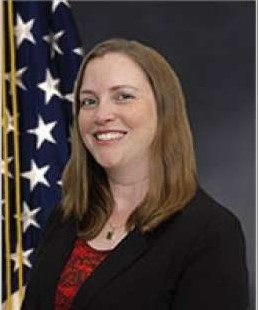Synthetic Aperture Radar (SAR) Signal Processing Challenges and Data Sets for Associated Research
Radar offers some unique capabilities compared to other sensing phenomenologies. For example, radar can operate at long ranges, during the day and night, and in most weather conditions. Synthetic aperture radar (SAR) enables formation of 2D and 3D images of ground scenes for a wide array of military and commercial applications. In this talk, Dr. Linda Moore will discuss current challenges in SAR signal processing, including the challenge of applying machine/deep learning techniques to SAR automatic target recognition (ATR). Measured and synthetic SAR data has been made publicly available by the U.S. Air Force Research Laboratory and can assist in developing new techniques for today's SAR signal processing challenges. Available data sets will be associated with relevant technical challenges and examples of related IEEE published work will be highlighted.
Date and Time
Location
Hosts
Registration
-
 Add Event to Calendar
Add Event to Calendar
Loading virtual attendance info...
- Contact Event Hosts
- Co-sponsored by Fairleigh Dickinson University
Speakers
 Dr. Linda Moore of United States Air Force Research Laboratory
Dr. Linda Moore of United States Air Force Research Laboratory
Synthetic Aperture Radar (SAR) Signal Processing Challenges and Data Sets for Associated Research
Radar offers some unique capabilities compared to other sensing phenomenologies. For example, radar can operate at long ranges, during the day and night, and in most weather conditions. Synthetic aperture radar (SAR) enables formation of 2D and 3D images of ground scenes for a wide array of military and commercial applications. In this talk, Dr. Linda Moore will discuss current challenges in SAR signal processing, including the challenge of applying machine/deep learning techniques to SAR automatic target recognition (ATR). Measured and synthetic SAR data has been made publicly available by the U.S. Air Force Research Laboratory and can assist in developing new techniques for today's SAR signal processing challenges. Available data sets will be associated with relevant technical challenges and examples of related IEEE published work will be highlighted.
Biography:
Dr. Linda Moore received a B.S. in computer engineering from Wright State University (Dayton, Ohio, USA) and an M.S. in electrical engineering from The Ohio State University (Columbus, Ohio, USA). She received a Ph.D. in electrical engineering from the University of Dayton (Dayton, Ohio, USA) where she focused on the impact of phase information on radar automatic target recognition. Dr. Moore is an IEEE Senior Member and has 19 technical publications including journal articles in IEEE Transactions on Aerospace and Electronic Systems, and IEEE Aerospace and Electronics Systems Magazine. At the United States Air Force Research Laboratory, Dr. Moore has focused on innovative solutions for real-time radar processing to create 24/7, all-weather, day/night sensing capabilities. She has also published data sets and challenge problems to reduce the barrier of entry for radar signal processing researchers.
Address:New Jersey, United States
Agenda
Radar offers some unique capabilities compared to other sensing phenomenologies. For example, radar can operate at long ranges, during the day and night, and in most weather conditions. Synthetic aperture radar (SAR) enables formation of 2D and 3D images of ground scenes for a wide array of military and commercial applications. In this talk, Dr. Linda Moore will discuss current challenges in SAR signal processing, including the challenge of applying machine/deep learning techniques to SAR automatic target recognition (ATR). Measured and synthetic SAR data has been made publicly available by the U.S. Air Force Research Laboratory and can assist in developing new techniques for today's SAR signal processing challenges. Available data sets will be associated with relevant technical challenges and examples of related IEEE published work will be highlighted.

